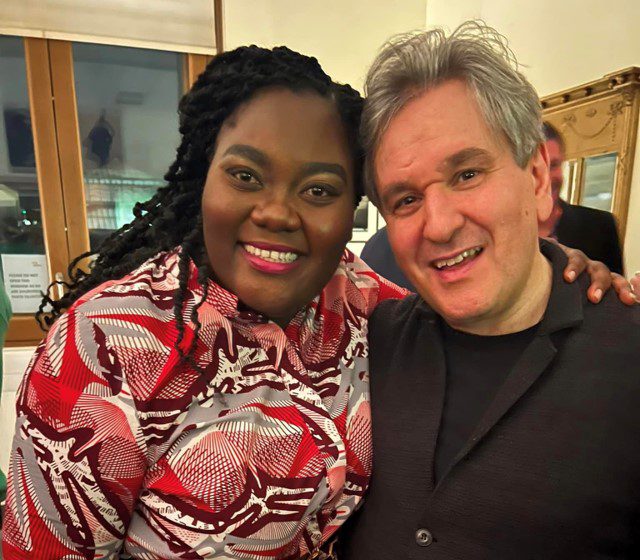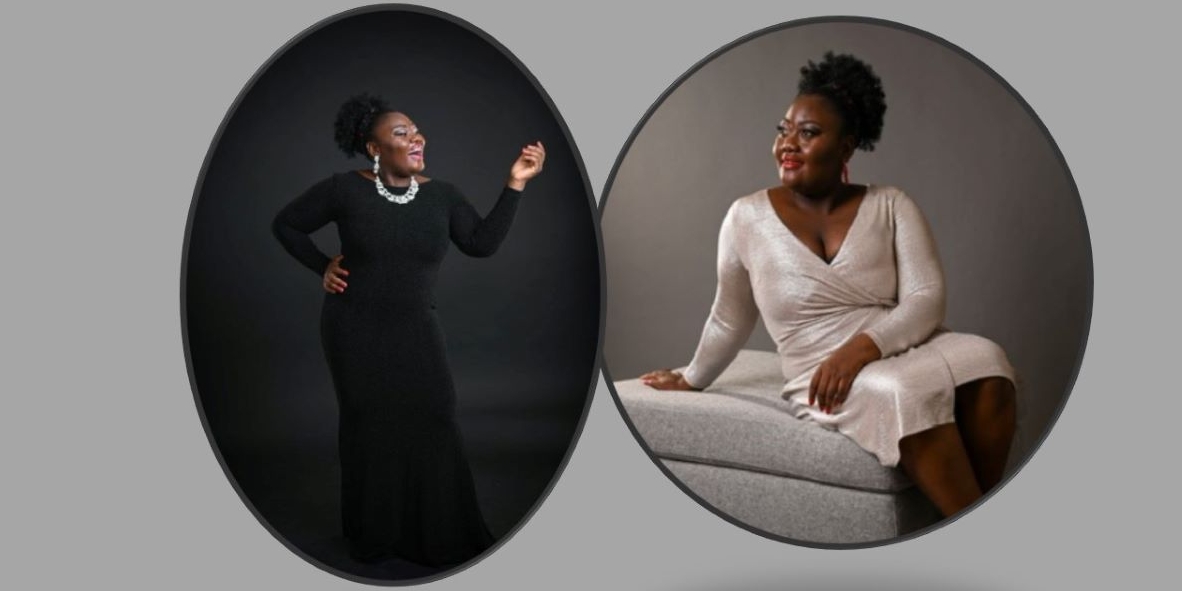The leap from Limpopo to the Royal Opera House took even Masabane Cecilia by surprise.
On 17 June 2021 the BBC announced, ‘Soprano Masabane Cecilia Rangwanasha, 27 years old from South Africa, was today named the winner of the Song Prize at BBC Cardiff Singer of the World 2023’.
“Masabane performed with such assured technique and emotional power that the jury was unanimous in naming her the winner.”— John Gilhooly, Wigmore Hall’s Artistic & Executive Director, and Chair of the Judges
What a triumph for the young soprano from Limpopo.
In this year’s Royal Opera House’s Turandot, Masabane Cecilia had her debut performance as Liù. At the curtain call the audience showed their appreciation of her stupendous performance with tumultuous applause. The critics followed with an affirmative nod to the rising star.
Masabane says ‘I really enjoyed playing Liù, especially surrounded by great musicians who have been performing longer than me and also guided by Maestro Pappano, who is one of the people that are my inspiration, mainly because of their dedication and attention to the music’.
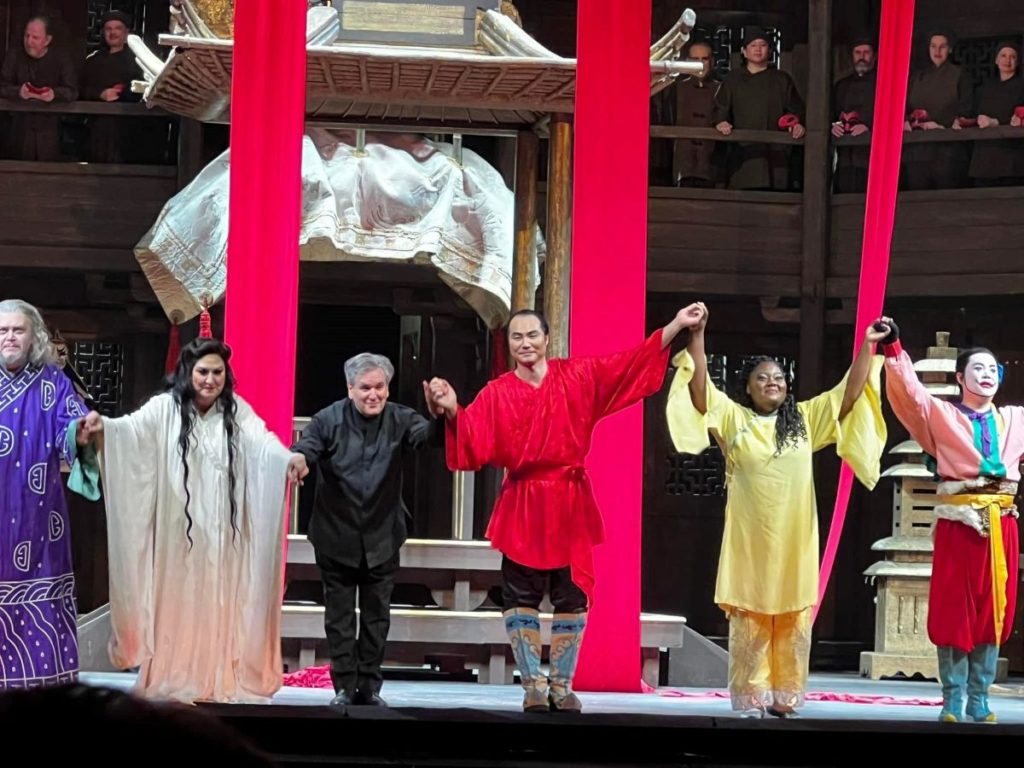
Early encounter with music
Born in Johannesburg, at the age of two, her mother and three siblings headed north after the untimely death of her father. They settled in the small town of Lebowakgomo, where there were three Primary schools and three High Schools. The Church was the focal point of their social life. All four siblings were in the church choir. The mother joined the adult’s choir. Masabane Cecilia’s impressive and powerful voice, would secure her solo parts at school and church choirs.
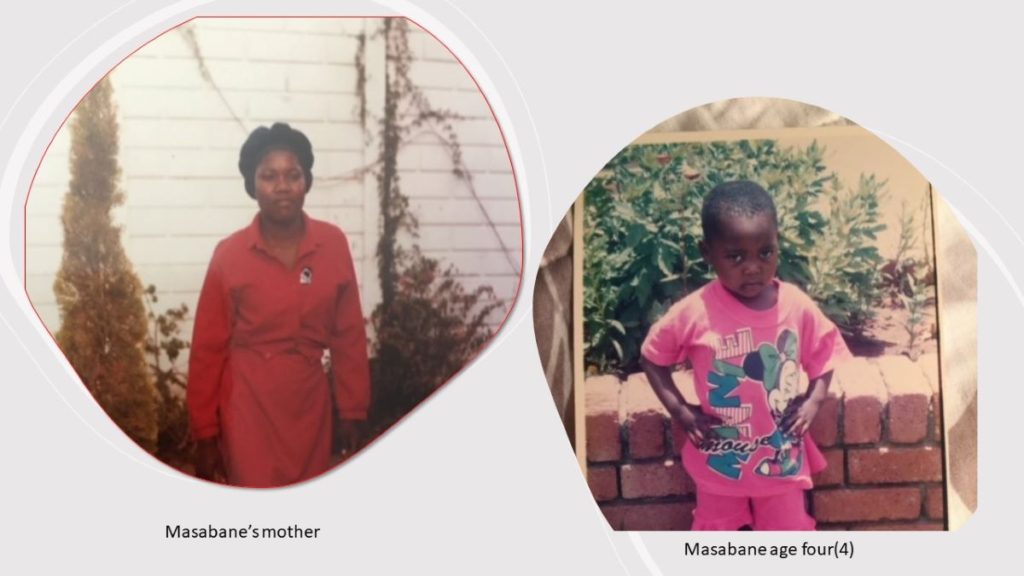
By the age of 19, she explains, the only music she knew was ‘church music’. That was the only name she could associate with her singing. ‘There were no smartphones nor internet’. The knowledge within the small town was the core source of musical knowledge.
Fortunately for Masabane Cecilia, she was born in post-Apartheid South Africa, which offered the young, keen, and talented Masabane opportunities and the confidence that she would not have gained otherwise. The Rangwanasha family was steeped in soul music. Her two brothers eventually became conductors in church choirs, and Masabane cut through the vast distances and spread her wings into the big cities – Johannesburg and Cape Town to advance her studies.
Introduction to Opera
Ten years ago, the 19 years old Masabane had never heard the word ‘opera’ let alone appreciated that some of the spiritual songs she is singing are drawn from well-known operas.
Once she finished her matriculation examinations in Limpopo, she decided to further her knowledge of music by going to university. For that she had to travel to Johannesburg and register at the university to study music. Little did she know that she had to sit the theory exam. ‘At that point I had no idea what a crotchet is. Music theory was beyond me, and in any case the department specialised in Jazz, yet another genre I was not familiar with.’
She was momentarily lost but not disheartened. ’When the professor asked me ‘Why are you here? I said, I’m here to sing. And he said, sing what? I told him ‘Church music’. I was asked to sing. That was an audition. I sang and aria from Fidelio. The Professor looked at me and said ‘This is not jazz, this is opera. You are in the wrong department.’
‘I did not tell him I did not have a clue what opera is but followed his direction to the new department. I had my audition and was accepted. That is how I started my studies’ says Masabane with a happy smile.
‘You see’ she explains with a warm voice ‘until then I did not realise, we were singing opera, we didn’t know what opera was. We never heard that word. We knew it was music in a funny language. So, when I sang, in school competitions, we got to sing solos and arias while not knowing these are arias or that it all had a name called Opera. , the Professor said ‘this is not jazz. It is the other department. So, he sent me to the Opera Department. I was accepted and that’s how I started my studies’, Masabane Cecilia adds with a smile.
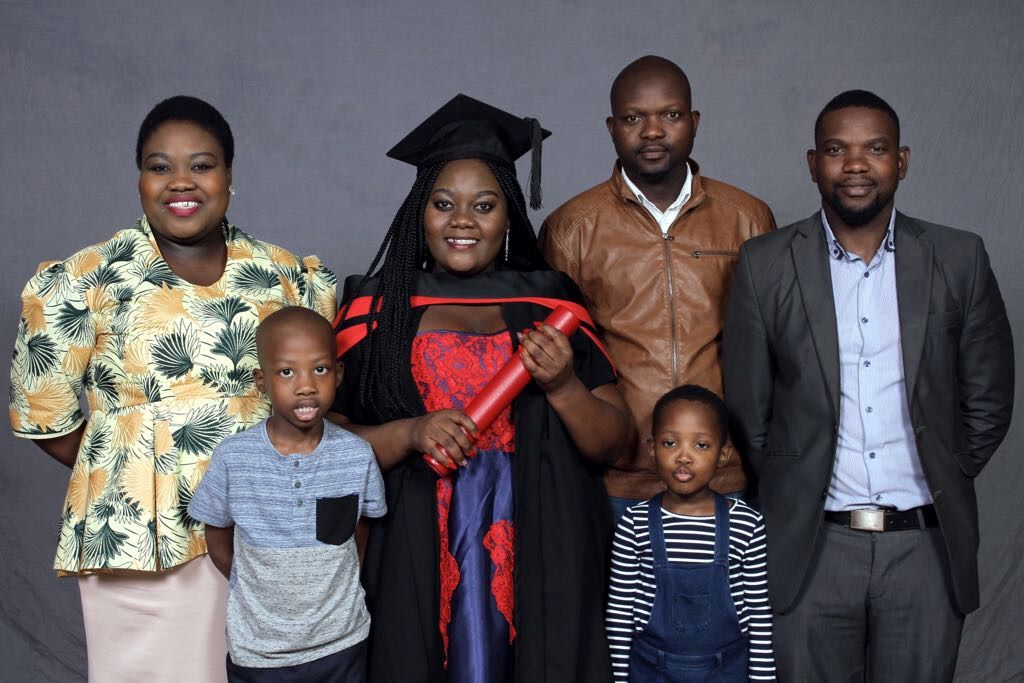
Can you give us some idea as to the structure of the course?
Masabane Cecilia with youthful enthusiasm explains ‘For the first year we start learning Italian. So, this is a little bit of speaking, but it’s a lot about pronunciation and phonetics because even after you say it, I need to be able to write it. Italian is easier than the other languages because we have the vowels in our language. So how it sounds, that is the way you write it’. And after a short pause, she adds, ‘in the second year we get introduced to German. So German, uh (cut please), because I’m from South Africa, we have the language called Afrikaans, which is a mix of Dutch and German, so the sounds for us weren’t foreign. It wasn’t like something very, very new. So, in the second year we also do the same, pronunciation of German and how to write it for native speakers. And then, the third year is French, which for us, well it’s very new because we don’t speak French in our country, and there are so many rules, all very complicated. What you see is not what you say, you know? So, I think that’s why they leave it for third year,’ she adds with a smile.
‘For the first year there will be chorus or a very small role in the opera that the school is staging. Then from second year, you can start to audition for a role of the opera they will be doing, going on until fourth year’. A great deal we learn by listening. I can just listen to a piece and then sing it’ a skill she admits, acquired from childhood when singing in the church choir.
‘In our church during music rehearsals, we read annotated notes and then played it on a melodica. So, we had to learn the songs by just listening to them. Sometimes a teacher or a conductor will sing the song to us and then we had to sing it back. That must have helped me with the oral training because you get to be able to blend well with other people in an ensemble. That’s what one needs when singing in an opera. The oral training is essential to secure the right pitch with the orchestra’s playing.
All these minor lacunas gradually disappeared and have been replaced by minor triumphs. Every step moved her forward and up. Masabane Cecilia went on to be a Young Artist with Cape Town Opera for two years, singing First Lady in Die Zauberflöte (with University of Cape Town), Mother of Mandela in Mandela Trilogy and Serena in Porgy and Bess (South Korean Tour).
Competitions and awards
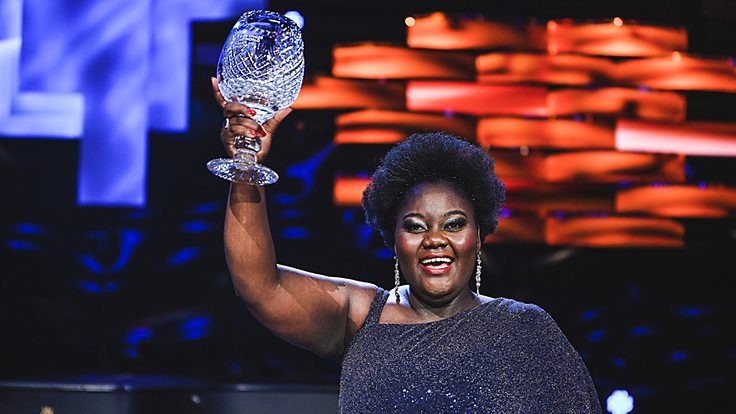
The competitions Masabane entered and awards she received, are numerous. She explored every opportunity that offered itself.
‘My first competition when I was at university was the Philip Moore Music Competition – three songs from different genres. I won the first prize. Many more competitions followed, including a Choir competition where I sang a solo in a choir. Competition successes include the Audience Prize and two special prizes in the prestigious International Hans Gabor Belvedere Singing Competition for young opera singers in 2019: This competition has been described as “THE ‘springboard’ for a career in opera’ or the “singers’ stock exchange, the ‘Wall Street of Voices’. Winning the Song Prize in Cardiff was huge, and an especially nerve racking experience as when you sing an early round you have no idea until the Friday evening if you get through. ‘
In 2018 Masabane Cecilia is recognised and seen as exceptional talent and is invited to join the ROH’s Jette Parker Young Artist program in the 2019/20 (COVID-19 season!), The program supports the artistic development of talented singers at the beginning of their careers. Being part of the program gave her the chance to be a salaried member of The Royal Opera and immersed in the life of the Royal Opera House over a two-year period in a specially tailored program which includes extensive daily coaching in languages, stagecraft, and vocal techniques, alongside training for cover roles, performing in concerts and for smaller roles on the main stage.
In autumn 2021 she joined the ensemble of Bern Staatsoper for two years where she sings in concerts.
Subsidising her studies
Like many young aspiring singers, the early part can be financially very challenging. In post-apartheid South Africa, Masabane says ‘there is a National Student Financial Aid Scheme (NSFAS)’. The NSFAS scheme provides funding and loans for students to further their studies at all universities and colleges throughout South Africa. Once a student qualifies for a NSFAS loan s/he does not have to supply guarantees or sureties from parents or guardians to receive their study aid or loan. Masabane Cecilia benefited from the scheme until her marks were high to qualify her for scholarships.
Dreams
‘I wanted to be an opera singer, but I didn’t see it that far. You know, when you dream, you have, I think, limitations on what you dream.’
What is your dream role?
‘To sing Aida’ she replies with no hesitation. ‘That is my dream’.
Why?
‘Aida is my dream role mainly because of the story. The narrative happens in my continent. Aida is an African woman, and the music is phenomenal. So, I am looking forward to play Aida in years to come.’
Here are a few more of Masabane Cecilia’s awards:
Masabane Cecilia is also a winner of the UNISA Competition, and First Prize and Best South African Song (final 2017, semi-final 2018) in the ATKV Singing Competition.
She went on to be a Young Artist with Cape Town Opera for two years, singing First Lady in Die Zauberflöte (with University of Cape Town), Mother of Mandela in Mandela Trilogy and Serena in Porgy and Bess (South Korean Tour).
In 2019, she sang soprano solo in Verdi‘s Requiem with Oude Libertas choir in Stellenbosch, and was nominated Best Singer in the opera category for Woordfees 2019. She was awarded Second Prize in Muzicanto in Cape Town, an award from the Schock Philips Foundation at UCT.
In the first night of the 2022 PROMS at the Royal Albert Hall, Verdi‘s Requiem offered Ms Rangwanasha an international stage – she sang as a duet then a soloist. The critics were unanimous – she is the star. Tim Ashley of the Guardian wrote ”This is an exceptional voice, sumptuously in tone, marvellously controlled throughout its range. Her singing combined beauty with great depth of feeling and was outstanding throughout – a great artist.’
Watch out for performances with this rising star – 2023 Proms and with the London Symphony Orchestra’s 2023/24 concert season at the Barbican, where she joins Sir Anthony Pappano and Dame Sarah Connelly in Mendelssohn’s Elijah.
